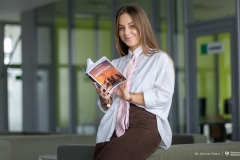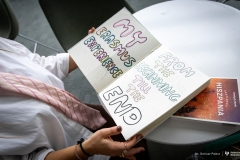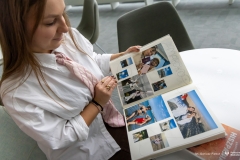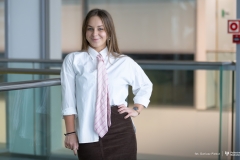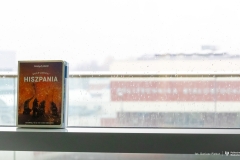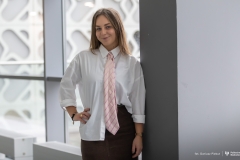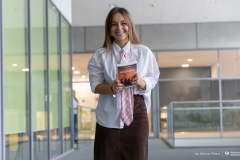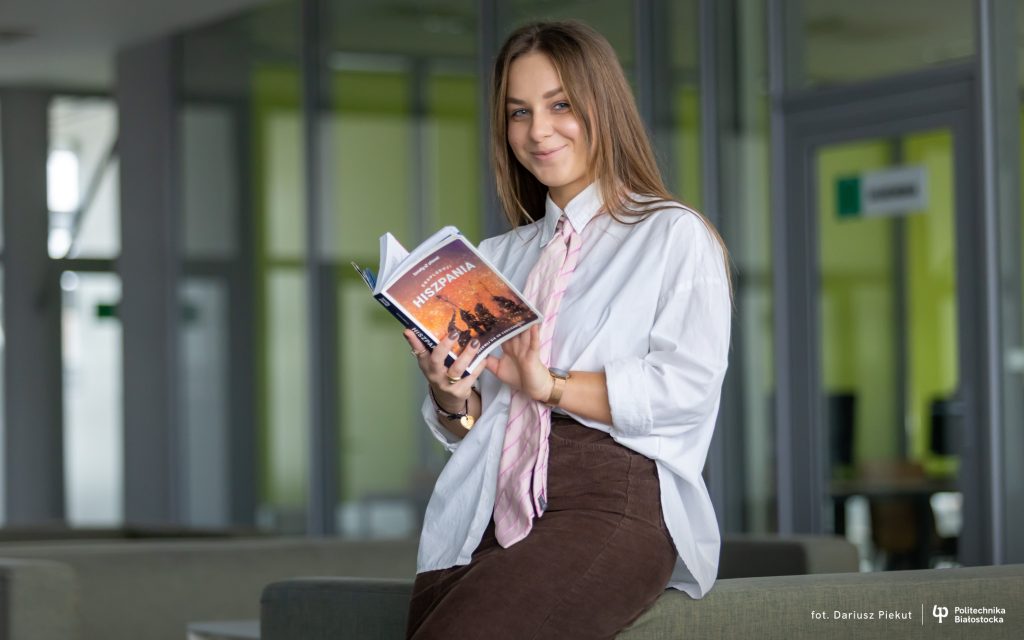
The Erasmus+ programme at Bialystok University of Technology is an opportunity for professional, scientific and personal development – for studying in an international environment, discovering new cultures and broadening one’s horizons. Klaudia Domalewska, a student of environmental engineering, spent an entire semester of her final year at a university in Spain.
A trip abroad for the final semester as part of the Erasmus+ Programme turned out to be one of the most valuable experiences during her studies for Klaudia Domalewska, a student of the environmental engineering study programme at the Faculty of Civil Engineering and Environmental Sciences of Bialystok University of Technology.
– I had heard about Erasmus even before I started my studies, but for a long time I did not think I could take part in it – recalls Klaudia Domalewska. – Eventually, in the final year, I decided to apply and go abroad.
How the Erasmus+ recruitment process works
The recruitment process is multi-stage and requires patience. Students complete an application form, take a language test (the minimum required level is B2 in English) and choose a partner university.
– In my case, finding the right university took a long time, but I could count on enormous help from Natalia Stankiewicz, PhD, Eng, Erasmus+ Faculty Coordinator at the Faculty of Civil Engineering and Environmental Sciences of Bialystok University of Technology – emphasises Klaudia. – Coordinators play a very important role. They help, explain and support students at every stage of the preparations.
The Erasmus+ Programme is available already during first-cycle studies, and also – as in Klaudia’s situation – during the final semester of second-cycle studies. In such cases, it is necessary, among other things, to obtain the supervisor’s and Vice-Dean’s approval and complete an internship.
Scholarship and organisation of the mobility
Students eligible for the Erasmus+ programme receive a scholarship that covers part of the living costs.
– The Erasmus+ funds are enough for basic expenses in a student city, but if you want to travel more, it is good to have your own savings – says Klaudia.
The partner university in Elche, Spain, did not have a student residence hall, so Klaudia organised her accommodation independently.
– Student groups and links shared by students from across Poland turned out to be very helpful. Thanks to them, I found reliable accommodation – adds Klaudia.
Studying, travelling and discovering yourself
Klaudia Domalewska spent a semester at Miguel Hernández University of Elche, near Alicante. She attended classes from Monday to Friday, and devoted weekends to travelling across southern Spain and Morocco.
– Erasmus+ is a huge lesson in independence and openness. You meet people from different countries, discover other cultures, and at the same time learn to appreciate simple things – recalls Klaudia Domalewska. – I remember sitting with friends over the cheapest coffee and thinking that life really can be beautiful.
Why it is worth going abroad
Studying abroad is not only an adventure, but also a lesson in independence.
– Fortune favours the brave – says Klaudia. – At the beginning I was afraid, because I was travelling alone to a foreign country, but it was the best decision of my life. I learned how to function in a new place, discovered a new culture and met people who became my friends. You cannot put such an experience into words – you have to live it.
The Erasmus+ Programme is available to students of all study programmes at Bialystok University of Technology. The University offers both mobility for part of studies and international traineeships, as well as short-term mobility. Information on the rules and recruitment deadlines is available on the website of the International Relations Offices of Bialystok University of Technology.
Katarzyna Kozioł
The Erasmus+ programme is co-financed by the European Union.

